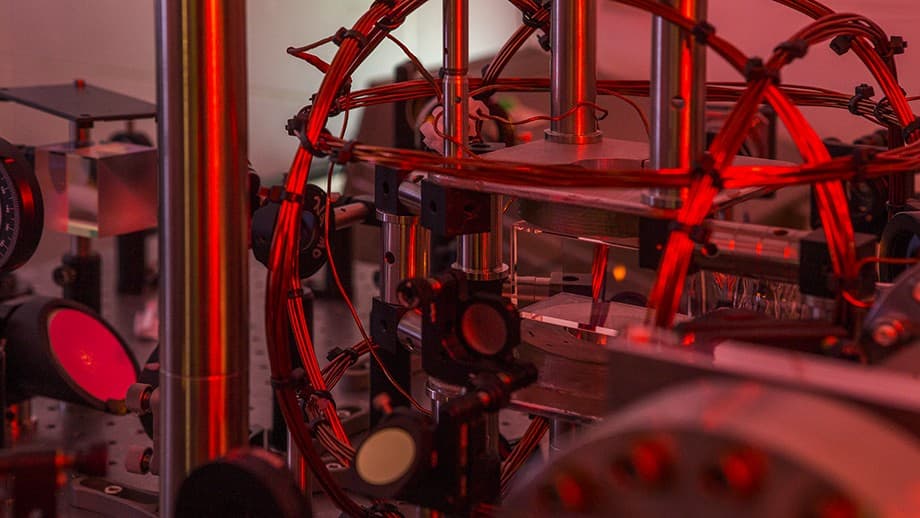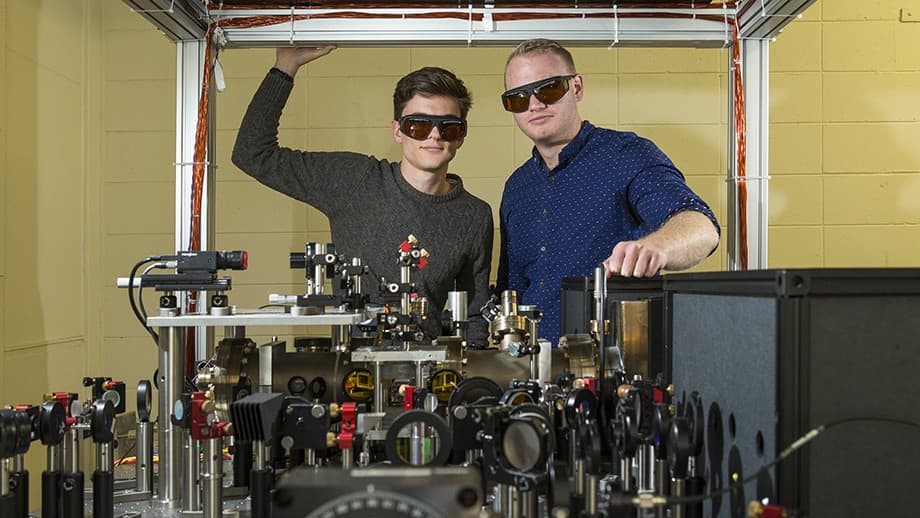Artificial Intelligence Duplicates Nobel Prize Winning Experiment In One Hour Flat
Physicists from Australian National University (ANU) have been successful in using artificial intelligence to run a complex experiment in what could eventually free up capacities of human scientists to focus on high-level problems of research design, leaving the nuts and bolts to a robotic lab assistant. The experiment, developed by physicists from ANU, created an extremely cold gas trapped in a laser beam, known as a Bose-Einstein condensate, replicating the experiment that won the 2001 Nobel Prize.
 Bose-Einstein condensates are some of the coldest places in the Universe, far colder than outer space, typically less than a billionth of a degree above absolute zero. To the utter amazement of physicists the machine learned to do the experiment itself, from scratch, in under an hour.
Bose-Einstein condensates are some of the coldest places in the Universe, far colder than outer space, typically less than a billionth of a degree above absolute zero. To the utter amazement of physicists the machine learned to do the experiment itself, from scratch, in under an hour.
The team cooled the gas down to 1 microkelvin and handed over control to the AI. It then had to figure out how to apply its lasers and control other parameters to best cool the atoms down to a few hundred nanokelvin (i.e. a billionth of a second), for which it found more and more efficient ways with repetitions.

(Paul Wigley, left, & Dr. Michael Hush)
The condensates could be used for mineral exploration or navigation system as these are extremely sensitive to external disturbances which in turn allows them to make very precise measurements as capturing tiny changes in the Earth's magnetic field or gravity. The artificial intelligence system's ability to set itself up quickly every morning and compensate for any overnight fluctuations could make this fragile technology much more useful for field measurements, quoted co-lead researcher Dr Michael Hush.
The new technique could lead to bigger and better experiments, in future. Next the researchers plan to employ the artificial intelligence to build an even larger Bose-Einstein condensate faster than the world has ever seen before.
The research was published in the journal #-Link-Snipped-#
Source:<a href="https://www.anu.edu.au/news/all-news/artificial-intelligence-replaces-physicists" target="_blank" rel="nofollow noopener noreferrer">Artificial intelligence replaces physicists - ANU</a>

The team cooled the gas down to 1 microkelvin and handed over control to the AI. It then had to figure out how to apply its lasers and control other parameters to best cool the atoms down to a few hundred nanokelvin (i.e. a billionth of a second), for which it found more and more efficient ways with repetitions.

(Paul Wigley, left, & Dr. Michael Hush)
The new technique could lead to bigger and better experiments, in future. Next the researchers plan to employ the artificial intelligence to build an even larger Bose-Einstein condensate faster than the world has ever seen before.
The research was published in the journal #-Link-Snipped-#
Source:<a href="https://www.anu.edu.au/news/all-news/artificial-intelligence-replaces-physicists" target="_blank" rel="nofollow noopener noreferrer">Artificial intelligence replaces physicists - ANU</a>
0
